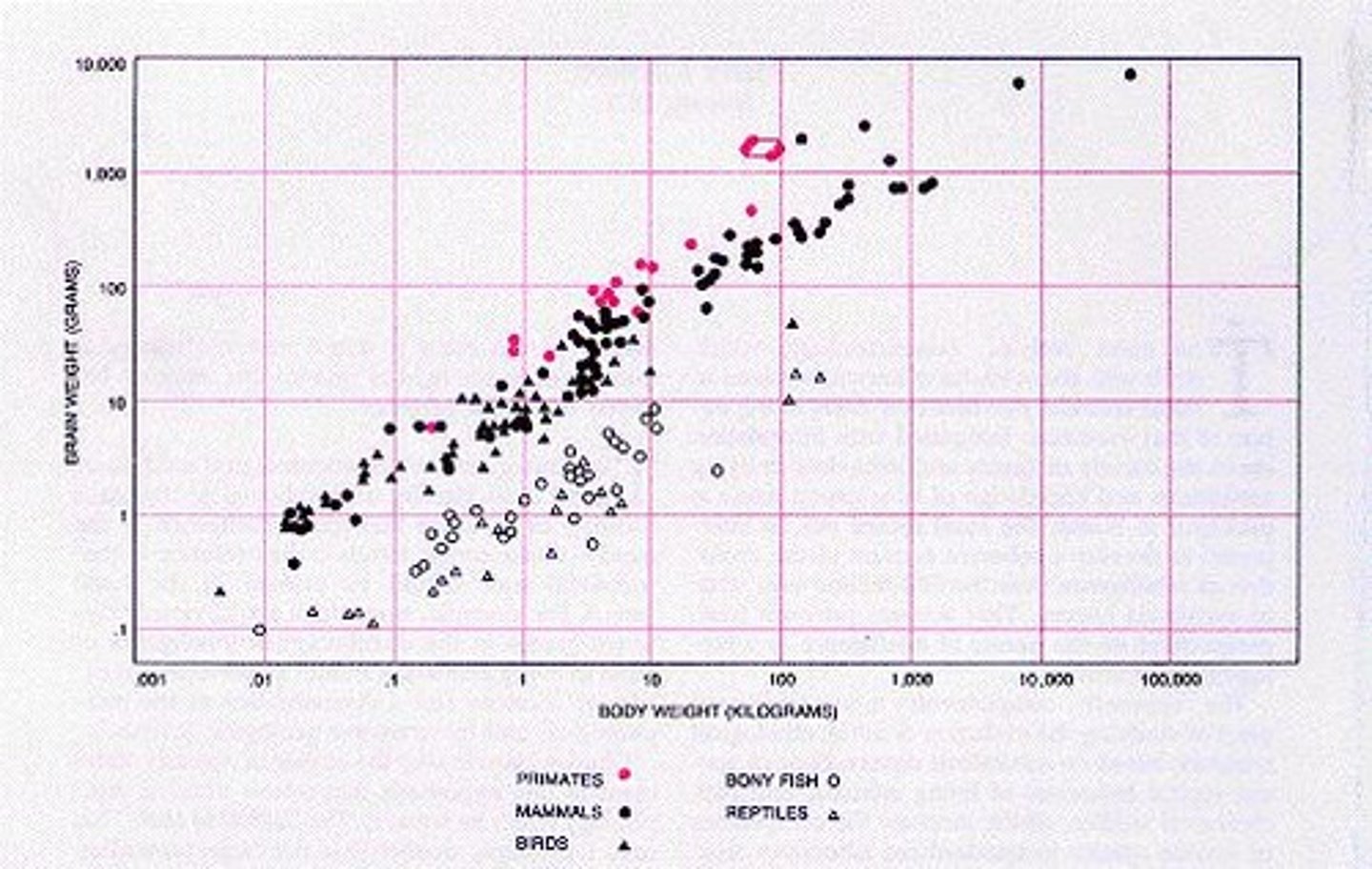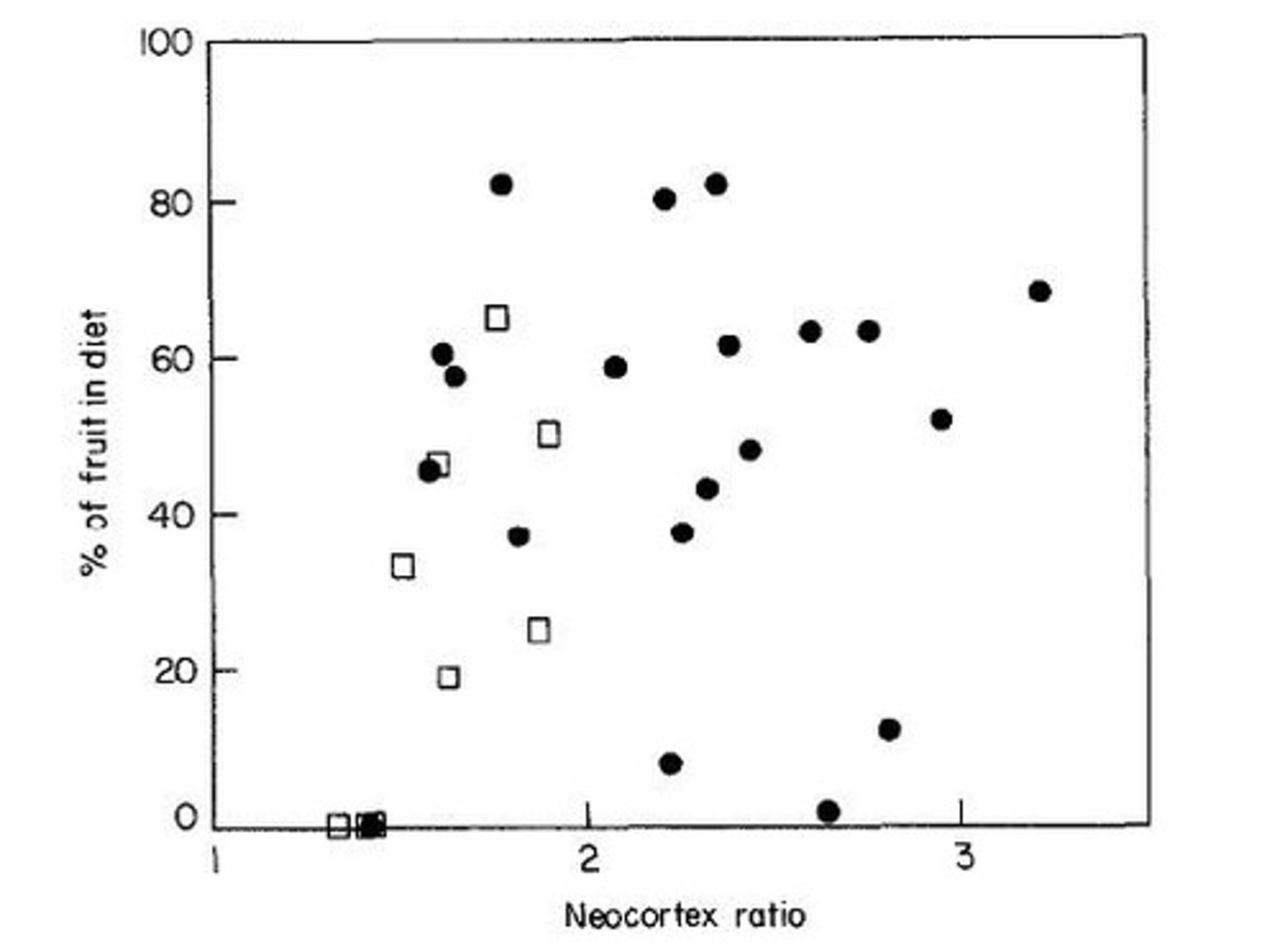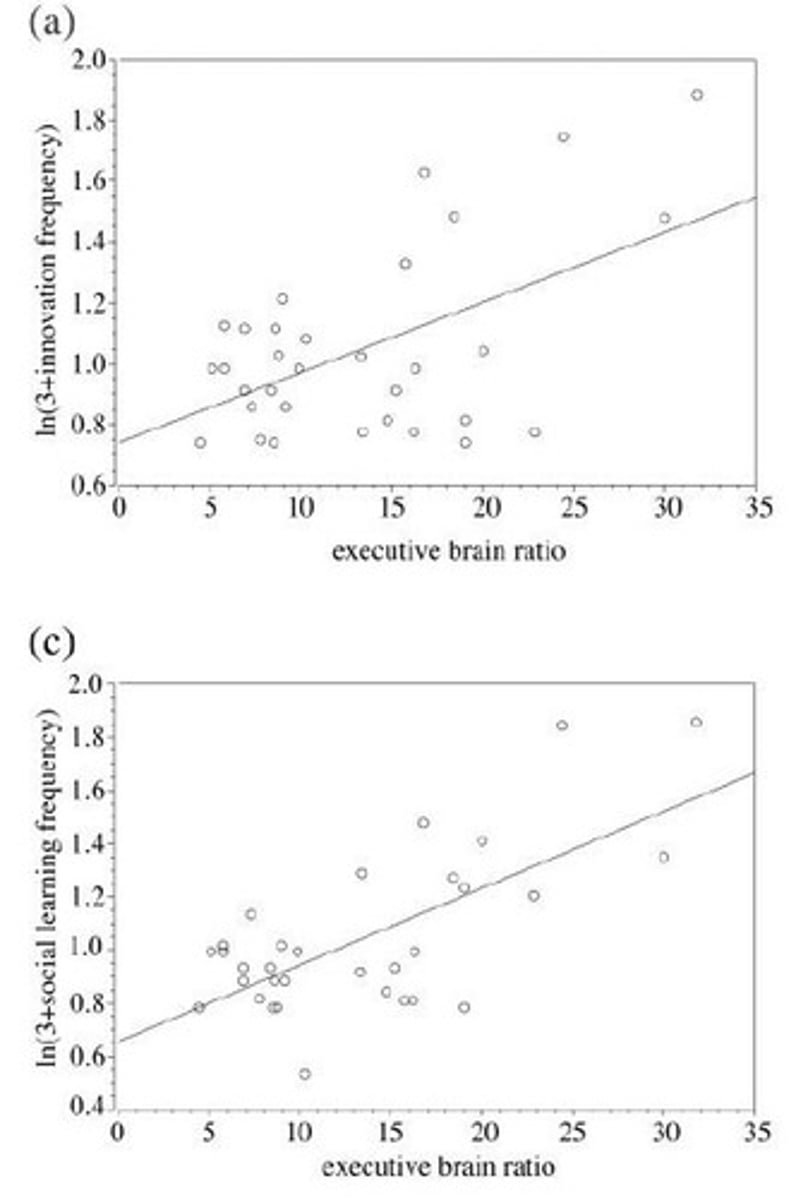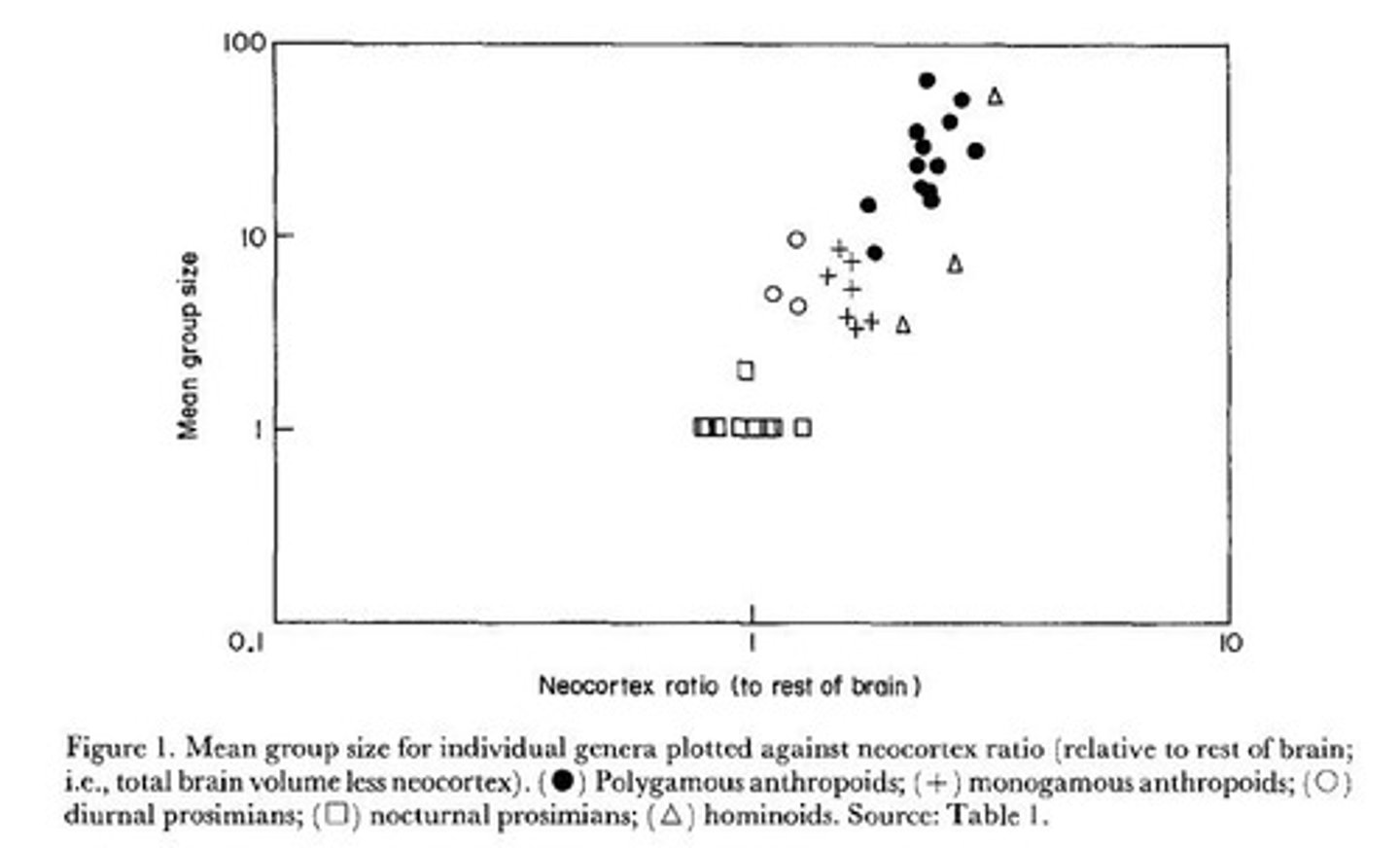Primate Intelligence and Life History Theory
1/27
There's no tags or description
Looks like no tags are added yet.
Name | Mastery | Learn | Test | Matching | Spaced | Call with Kai |
|---|
No analytics yet
Send a link to your students to track their progress
28 Terms
Primate brains
Large brains relative to body size in primates.

Life History Theory
Framework explaining trade-offs in energy allocation.
Selective pressures
Factors influencing evolution of traits in species.
Social Intelligence Hypothesis
Cognitive complexity linked to social living.
Ecological Factors
Environmental influences on cognitive evolution.
Frugivory
Dietary reliance on fruits requiring cognitive skills.

Extracted foods
Foods needing complex processing techniques.
Innovation
Ability to create solutions for novel problems.

Theory of Mind
Attributing mental states to oneself and others.
Dominance hierarchies
Social ranking system within primate groups.
Third-party relationships
Understanding connections between non-kin individuals.
Cognitive capabilities
Mental skills for problem-solving and learning.
Neocortex ratio
Measure of brain size related to cognition.

K selected species
Species with long gestation and low reproduction rates.
r selected species
Species with short gestation and high reproduction rates.
Longevity
Long lifespan associated with larger brain size.
Behavioral flexibility
Adaptability in behavior to changing environments.
Coalition partners
Individuals who support each other in social contexts.
Playback experiments
Tests using recorded sounds to study social knowledge.
Juvenile distress calls
Signals indicating danger, prompting maternal response.
Redirected aggression
Aggression directed at a different target than intended.
Cognitive evolution
Development of mental capabilities over time.
Extractive foraging
Gathering food requiring advanced cognitive skills.
Social bonds
Connections between individuals influencing group dynamics.
Metabolic costs
Energy expenditure associated with brain function.
Cognitive skills
Mental abilities for learning and memory.
Complex social interactions
Intricate relationships and behaviors within groups.
Anthropoids
Group including monkeys, apes, and humans.